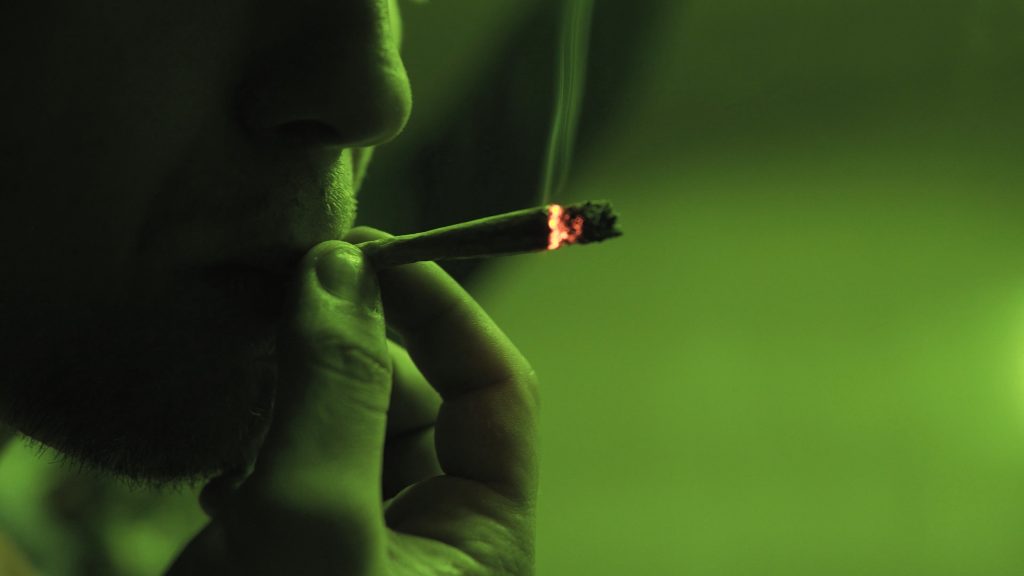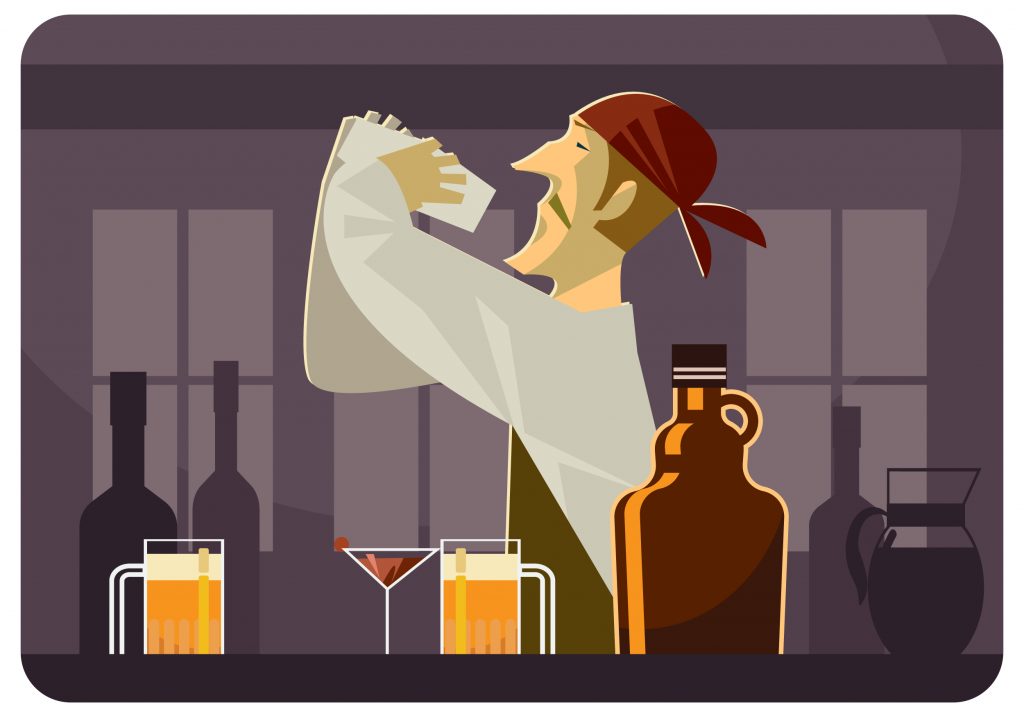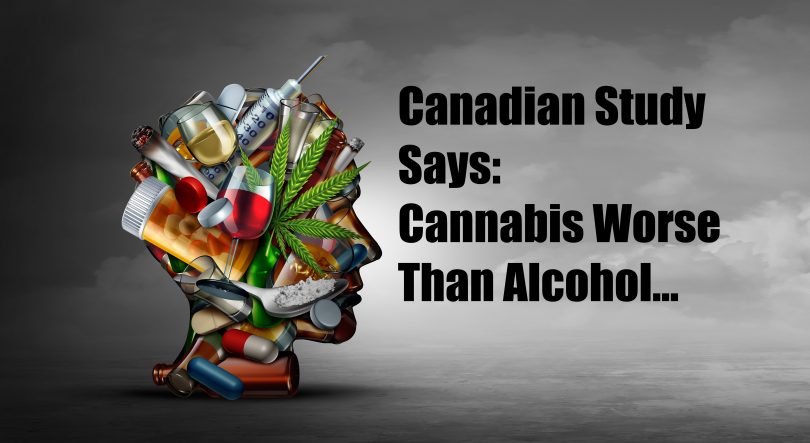In a big debate, there will always be information out there to support both sides. This doesn’t mean the quality of information will be the same, but it does mean there will be a represented argument. When it comes to the age at which people should be allowed to use cannabis without risking health concerns later in life, a recent Canadian study was done assessing the different starting ages for using cannabis. In so doing, it raises the question, is cannabis worse than alcohol?
What to do this holiday season?
Take advantage of the best CBD FLower Deals this year!
When it comes to the use of controlled substances, one of the biggest regulatory issues is the minimum age at which a substance can be used, and this is not a globally agreed on number for any substance. Take alcohol, for example. Of all the controlled substances, there is probably no other through history that has caused as much overall damage, both to personal lives and finances, as well as destruction to others through violence and accidents.
Pretty much every country of the world has a drinking age to separate those allowed to partake, from those who cannot. In the US it’s 21 years of age, a number thought way too high by those who don’t see a reason why a person deemed capable of voting for elected representatives, and killing people in war, can’t also choose to take a drink. In most other parts of the world the age is closer to 18. So how does this compare to cannabis, and is cannabis worse than alcohol?

Is cannabis at 19 too young?
As it happens, a recent study was done to assess the risk component of starting cannabis use at different ages. The reason for the study was the lack of information to back up claims and concerns by different groups. In Canada, after legalization, the government wanted to institute a legal use age of 18 for non-medical users. This would go in line with several Canadian provinces’ age for drinking as well, though some are set at 19. This was argued by the medical community (or, parts of it) which wanted an older age of 21-25, citing possible issues with cognitive development. Public consultations to find an agreement led to most provinces tacking on an extra year to make the legal age 19, while a couple retained the age of 18.
To make it perfectly clear, this decision means that Canada is essentially making the statement that alcohol is not more dangerous than cannabis. Which is rather backwards when considering the overall toll that alcohol takes, especially when compared to a medicinal herb that has never caused a death on its own.
In order to find a way to assess how beginning marijuana use at different ages effects people later in life, a study was conducted through BMC Public Health, which looked at surveys already taken, and self-reporting questionnaires to establish education, cigarette smoking, and health (both physical and mental) later in life, for different ages of cannabis implementation. The four different age groups being focused on for implementation of cannabis use were: less than 18, 18, 19-20, 21-24.
According to the study, 21 was found to be the best minimum age for higher educational advancement, 19 for whether it will increase the risk of being a cigarette smoker, and 18 for both physical and mental health. This gives a weighted average of about 19. The study authors made no statement about conflict of interest, either for or against. According to the findings of the study, 19 should be the minimum age of use. Does this mean Canada doesn’t see a difference in danger between alcohol and cannabis?
Cannabis or Alcohol? The best option might be the Delta-8 THC!
Want to try the new kid in town? Subscribe to the Delta 8 Weekly newsletter
Is it true that cannabis is more dangerous?
Of course not! At least, not if you’re looking at real statistics. And it’s not even close. It’s also true that a study may have not been done which looks at the exact same things, but plenty of statistics are available for death rates, driving accidents, levels of alcoholism along with the issues it causes, and violent incidences related to both alcohol and cannabis. So, while the study above kind of gave an idea as to whether cannabis can be detrimental to overall life and health, perhaps taking a look at more relevant statistics and studies is useful.

For example, in 2018, a study came out showing no safe limit when it comes to alcohol consumption. Can you imagine that? No safe limit at all! In fact, the study found that alcohol consumption was responsible for the deaths of three million people worldwide in 2016. The study looked at 195 countries and territories, between the years of 1990-2016. The findings clarify alcohol use as a primary risk factor for both death and disability (that last part is important since the original study spoken about concerning issues later in life due to cannabis use, makes the backhanded statement that cannabis can lead to health and cognitive disabilities – something that isn’t actually yet medically proven). The study looked at the Global Burden of Diseases, Injuries, and Risk Factors 2016 study, 694 data sources for both individual and population consumption, and 592 studies (prospective and retrospective) related to the risks of alcohol use.
According to the findings of the study, alcohol came in 7th place for risk factors for death and DALYs in 2016. DALY is the disability-adjusted life year, and measures overall disease burden as a number of years lost due to sickness, disability and death. This is often used as a comparative measure between different countries for overall health and life expectancy. When looking at the age group of 15-49, alcohol actually became the primary risk factor in 2016. I feel like that should be repeated – when looking at the entire world population between the ages of 15 and 49 in 2016, alcohol was the leading risk factor for death and disability. This puts it above cardiovascular issues, respiratory issues, and any other drug issues, including cannabis. Yet nearly every country promotes consumption, and the majority allow it starting at 18. The study found that there was no minimum consumption amount that minimized harm, meaning there is no safe amount of alcohol to consume. And no medicinal value to it.
If you simply put the term ‘alcohol deaths’ into Google, you’ll get enough resources immediately to know there are most certainly deaths associated with alcohol. Put ‘cannabis deaths’ in Google, and the best you’ll see is speculation, with the strongest argument being that it might lead to more traffic accidents. Of course, none of those sources will say anything ridiculous, like that cannabis causes more traffic accidents than alcohol, because we all already know it doesn’t. You won’t find anything else about actual hard death statistics, because there aren’t any.
In the chapter on Injury and Death from The Health Effects of Cannabis and Cannabinoids: The Current State of Evidence and Recommendations for Research, literally the best it comes up with is that cannabis might increase the chance of a motor vehicle accident, that legal states have an increased risk of cannabis overdosing in kids (with still no death mentioned), and a general question mark when it comes to mortality and occupational injury. Do you think there was ever a question mark there about alcohol?
Not to beat a dead horse, but just to give more of an idea as to the certainty of the damage of alcohol, according to the NIH, approximately 95,000 people die a year in the US alone from alcohol-related causes. In 2014, drunk driving-related deaths accounted for 9,967 deaths that year, which was 31% of all fatalities related to driving for the year. In 2012, 3.3 million global deaths were attributed to alcohol. And when it comes to abuse, as of 2019, it was estimated that 14.1 million adults in the US alone had a drinking problem, and almost a half million kids aged 12-17. If you’re really still wondering, is cannabis worse than alcohol, or even remotely requiring of the same, or more stringent requirements – it should be pretty obvious by now what the answer is.

Is alcohol banned anywhere?
Yes, it actually is! Though few and far between compared to how many places have bans or heavy restrictions on cannabis use. The only countries with full – or partial bans – are: Afghanistan, Bahrain, Bangladesh, Brunei Darussalam, Djibouti, some parts of India, parts of Indonesia, Iran, Kuwait, Libya, Maldives, Mauritania, Pakistan, Qatar, Saudi Arabia, Somalia, Sudan, and Yemen. Most of these are Muslim, and therefore alcohol is forbidden due to religion. Some of these countries do not have full bans and allow foreigners, or non-Muslims to drink.
When it comes to minimum drinking ages globally, there are actually about 19 countries that have no minimum age requirement, including China, and Indonesia. Around 20 countries allow drinking starting at 16 or 17 including Austria, Belgium, and Germany. The most common ages for a minimum age requirement are 18 and 19, and the majority of countries fall in here, like Australia, South Korea, Slovenia, Venezuela, etc. The age goes up to 20 in Iceland, Thailand, Japan, Paraguay, and Uzbekistan.
Though the US is often fingered as having the highest drinking age, it sits at 21, along with Oman, Sri Lanka, and a few other countries. This, of course, is all for recreational use, meaning all but less than 20 countries allow recreational alcohol, many of which – like China, Japan, South Korea, and Iceland – don’t allow any cannabis use at all. In fact, as of right now, the only countries to allow recreational use, are Canada, Uruguay, some US States, Mexico – though legislation is slated to come out next week, Canberra in Australia, and Georgia where it can be legally used, but not bought, sold, or grown.
Conclusion
As countries change their laws to allow cannabis, its impossible to get away from that minimum age requirement…or, at least, it seems to be. And as countries establish that minimum age requirement, perhaps they should look at their other minimum age requirements to make sure things make sense. Canada is a fantastic example of how they don’t. Not only is Canada not asking the question, is cannabis worse than alcohol, it’s making the direct statement through minimum age requirements and heavier restrictions in certain domains, that it is.
Welcome to CBDtesters.co, your #1 location for all cannabis-related news. Stop by everyday to stay in-the-loop, and sign up to our newsletter so you never miss a thing!
Resources
Cannabis Election Results – What Just Became Legal in the United States
Canadian Hemp Acreage and Export Value Up More Than 20%
India’s Bhang Loophole, and the Question of Legalization
11-hydroxy-THC and the Power of Edibles
Fly with Cannabis – Which Countries Let You Do It Newest Cannabinoid Best Deal Of The Year – $9.99 Delta 8 THC Vape Cartridges
What is DELTA 8 THC (FAQ: Great resource to learn about DELTA 8THC)
Time to Vote: Will WHO Cannabis Recommendations Be Accepted?
Germany Rejected Its Recreational Cannabis Bill
The CBD Flowers Weekly newsletter (your top resource for all things smokable hemp flowers)
The Medical Cannabis Weekly newsletter (International medical cannabis business report)
Lebanon Legalized Medical Cannabis, 1st in Arab World
The Delta 8 Weekly Newsletter (All you need to know about Delta 8 thc) and the Best Black Friday Delta 8 THC Deals 2020. Cannabis Election Results – Recreational Cannabis in Colombia – Coming Soon?
Current CBD Deals And Exclusive Offers
Mexico Still Waiting on Its Promised Cannabis Legalization
Customize Your Cannabinoids – Now You Can Mix’ N’ Match
Is Australia’s Capital Leading the Way for Legal Cannabis Down Under?
Cannabis Remains Schedule I After UN Vote
EU Beat France, CBD Legal Throughout EU









